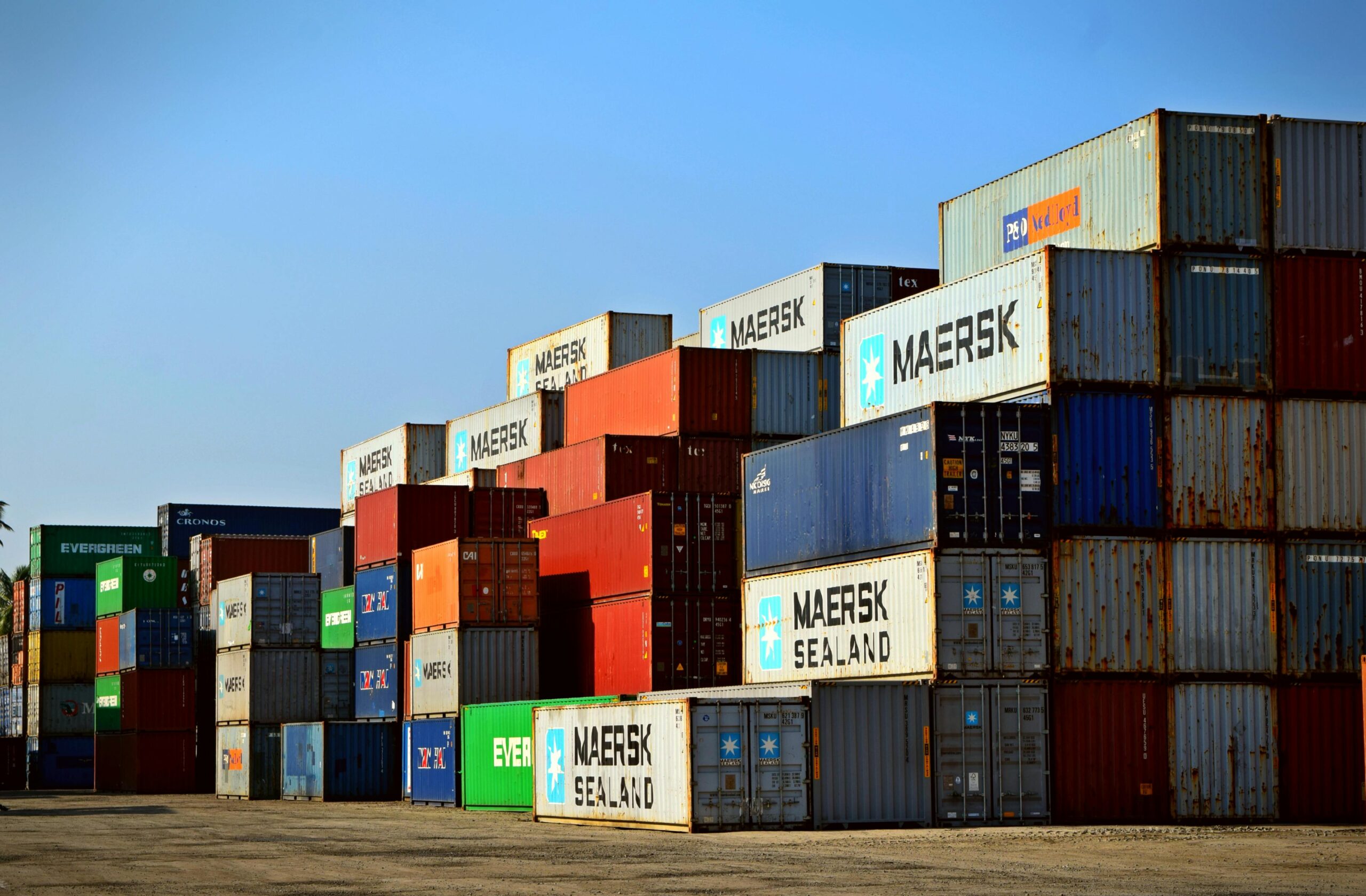8 Facts About Export Managers
Last Updated on July 17, 2025
Think about some of your favourite packaged products like candies, chips or cookies.
It’s unlikely that all of these products were made in the country you live in but instead were created and shipped from overseas. For small businesses it might be easy to ship the cookies via a courier and have them sent straight to your door. But when it comes to shipping large quantities of products, the process becomes much more complex. Different countries have unique regulations and requirements for importing goods, which can make it difficult to send shipment across the country.
To help manage these concerns organizations hire export managers. Export managers navigate these regulations and ensure that products make it to their destination safely and on time.
If it weren’t for export manager you might not be able to eat your favourite cookies!
In this article, we’ll take a closer look at how export managers navigate the complexities of regulations of shipping products around the world.
1. Export managers are responsible for helping companies export packages
Export managers manage the requirements and regulations necessary to export products across international borders. They ensure that products arrive on time and in good condition by making informed decisions about the transportation, storage, and distribution of products. These decisions can be made using data collected from shipping costs, delivery times, and customs regulations.
Export managers play a critical role in ensuring that products are shipped with the correct documentation. Shipments might include documentation such as:
- Certificates of origin
- Customs declarations
- Bills of ladings
They must have a strong understanding of the regulations in the countries they are exporting to and work closely with their team to comply with these regulations. Additionally, they need to be able to communicate effectively with staff members from different countries, taking into account language barriers and cultural differences.
Overall, export managers use a variety of tools to track products as they move through the supply chain, such as GPS and RFID tags, and documentation like bills of lading. They monitor the movement of shipping containers or individual packages to ensure that they are properly stored and transported according to international regulations.
2. Export Managers use data analysis make informed decisions
As with any role data and data analysis is being exceedingly important in making decisions. Export managers make decisions daily related to the transportation, storage, and distribution of products across international borders. These decisions include:
- Selecting transportation methods
- Choosing storage facilities
- Navigating complex regulations
- Identifying opportunities for continuous improvement.
To effectively make these decisions export managers must use data and analysis. An example of a situation that demonstrates this could be when an export manager is going over spreadsheets of shipment times. During data tracking they may observed a yearly trend that every their organization shipped a package with XYZ courier packages would take an additional 10% longer to be delivered. Using this information the export manager could make a better informed decision when seeking out new courier services. If this data wasn’t tracked it could potentially lead to losses of thousands of dollars.
Overall, export managers analyze shipping data, including transportation costs, shipping times, and customs regulations, to ensure that products are shipped efficiently and cost-effectively.
3. Export Managers ensure proper documentation for international shipments
Different countries have their own certification bodies such as the Canadian Food Inspection Agency (CFIA). Exporters must follow specific laws and obtain export certificates. For example in Canada, companies that export overseas must have an export certificate to demonstrate to foreign countries that there is regulatory oversight over their products.
Export managers play a critical role in ensuring that products are shipped with the correct documentation. Documentation requirements can vary greatly depending on the destination country and the type of product being shipped. These requirements can include things like certificates of origin, customs declarations, bills of lading, and more. It’s the responsibility of the export manager to ensure that all of the required documentation is in place and accurate before the product leaves the country.
Therefore, export managers must have a strong understanding of the regulations in the countries they are exporting to. Failing to comply with these regulations can result in serious consequences, including fines, delays, or even the seizure of the product.
4. Export Managers communicate across cultures
Export managers often work with international staff from various countries and cultures to ensure products are shipped and received successfully. This requires a deep understanding of how different countries perform business. Export managers must be able to communicate effectively with staff members from different countries taking into account language barriers and cultural differences.
Communicating effectively means that everyone in the shipping process is on the same page and understands their roles and responsibilities. For example, if a shipment of cookies is being sent from the United States to China, the export manager must communicate with the American staff to ensure that the cookies are properly packaged and labelled with the necessary information. They must also communicate with the Chinese staff to ensure that they have the proper documentation and certifications required for the cookies to clear customs.
5. Export Managers don’t necessarily have degrees
There is no particular educational pathway that is required to become an export manager. While some organizations may prefer the candidate to have a bachelor’s degree in international business, logistics, supply chain management or a related field others may not require a college degree at all.
However, having a formal education in these areas can provide a strong understanding of international trade regulations, global markets, transportation and logistics. These programs often cover topics such as supply chain management, import/export regulations, international marketing and global logistics.
Additionally, some employer may also require fluency in a foreign language, particularly if they will be working closely with overseas customers and partners.
6. Export Managers monitor the storage and movement of products internationally
Export managers use a variety of tools to track products as they move through the supply chain. They rely on tracking systems such as Global Positioning Systems (GPS) and Radio-frequency identification (RFID) tags or barcodes to monitor the movement of shipping containers or individual packages. They also use documentation such as bills of lading to track the contents of a shipment, its origin, destination, and the carrier transporting it.
For example, if a shipment of candies is being exported from Canada to Brazil, the export manager would work with a freight forwarder (person or a company who, for a fee, organizes shipments for the shipper) to ensure that the candies are properly packaged and labelled for international shipment. They would then use the previously mentioned methods to monitor the candies movement.
All these tracking measures help the export manager to ensure that the candies are properly stored and transported according to international regulation. If any issues arise, such as delays or damage to the shipment, the export manager would work to resolve them and ensure that the candies arrive at their destination in good condition.
7. Export managers help with continuous improvement initiatives
Organizations are always looking to improve their cost-effectiveness and sustainability. Improving delivery times, changing product packaging or adjusting delivery methods are all potential continuous improvement methods organizations can take.
Export managers work cross-functionally with other departments such as production and logistics to identify opportunities to improve processes across the exporting process. For example, an export manager may notice that when they are shipping their product to a certain country there are always customs clearance delays. By identifying the root cause of the delay the export manager could work with customs officials to expedite shipments by providing additional documentation or information prior to the shipment of the packages improving shipping times.
Export managers also play an important role in promoting sustainable practices by seeking out Eco-friendly transportation options and ensuring that products are packaged and shipped in an environmentally responsible manner.
8. Export Managers are strategic thinkers, have an attention for detail and can problem solve
Being a export manager requires a wide range of skills. However, there are a few which are more essential than others. These skills include:
- Problem-solving – Export managers must be able to identify problems and develop effective solutions quickly. They may encounter a variety of issues including shipping delays, customs issues and product quality problems. An export manager must be able to decide quickly the best course of action to resolve these issues.
- Negotiation skills – There’s always a cost associated with shipping products but that doesn’t mean these costs can’t be reduced. Export managers must be able to negotiate effectively with vendors, freight forwarders, and clients to ensure that they are getting the highest quality service for the best price.
- Attention to detail – A single mistake from an export manager could lead to delays, penalties or even legal issues. Therefore, these professionals are meticulous when it comes to documentation, regulations and compliance. They pay close attention to the details so they can avoid potential issues.





leave your comment